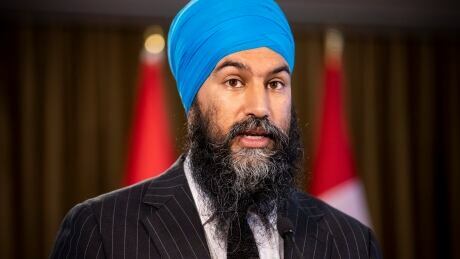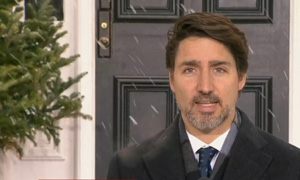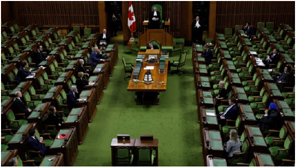Saturday April 11, 2020 ~ NATIONAL
by Mary Brooke ~ West Shore Voice News
Coming up today Saturday April 11 during the Easter long weekend is a short session in the House of Commons, expected to begin and end in one afternoon. The session is scheduled to start at 12:15 pm local time in Ottawa (9:15 am Pacific Time) and wrap up at 5 pm Eastern (2 pm Pacific).
Senators are to convene at 4 pm (Eastern) to consider the legislation as passed by MPs.
According to an email sent to Liberal MPs, all sides agreed there will be a limited number of MPs in the Chamber once again (as on March 24 for a previous emergency session), with 14 Liberals, 11 Conservatives, 3 Bloc Quebecois, 3 NDP, and 1 Green.
The urgent reconvening of parliament is regarding COVID-19 developments in Canada, in particular an upward adjustment to the wage subsidy package for business (from 10% to 75%).
Members of Parliament from all parties attended in the House of Commons on March 24 (into the wee hours of March 25) to pass an emergency support bill worth $107 billion that contained billions in tax deferrals, emergency response benefits and new powers to let the government spend without parliamentary approval until September 2020.
The first bill included the original proposal for a 10% wage subsidy which was set to be rolled out through income tax deductions. But when the Liberals changed gears to boost the subsidy to 75%, that avenue for delivering it no longer worked.
The new bill being considered today April 11 will add $73 billion to the earlier bill, and will include authorizations for their current plan based on direct deposits to employers by the Canada Revenue Agency (CRA).

There has been some legitimate concern across the country that the government’s wage subsidy plan helps only large businesses.
At 6 am (Pacific Time) this morning, April 11, NDP leader Jagmeet Singh will address media ahead of the House returning. Singh is proposing that the government provide direct financial assistance to all Canadians or make fixes to the Canada Emergency Response Benefit so it covers everyone that needs help (including self-employed, gig workers, and summer students), and that the wage subsidy package be beneficial to businesses of all sizes.
The wage subsidy and offer of loans to business are not seen favourably by many businesses, seeing that taking such options will only push them further into debt. If businesses close permanently during the pandemic, it will be much more difficult to restart the economy afterward.
Overall, the federal government’s current approach to aid (both for individuals and businesses) is still based on income-means testing and a view to helping big corporations. However, it is acknowledged widely that small and medium size businesses are the engines of local and regional economies, where a lot of new hiring takes place during normal economic conditions.
During the session in the House of Commons, at 9:15 am (Pacific Time) today, Prime Minister Justin Trudeau will deliver an address on the government’s work to support Canadians and limit the impacts of COVID-19.

For the last few weeks Trudeau has been addressing Canadians from outside his official residence in Ottawa, while he was self-isolating. He continues to make those daily briefings from outside Rideau Cottage, even though later this past week he began returning to his office for key meetings with cabinet.
Canada’s House of Commons is looking at taking its debates virtual as COVID-19 is expected to prevent a return that was originally planned for April 20. A full convening of parliament would require air travel by hundreds of MPs, who are generally in self-isolation right now along with the rest of Canadians due to the COVID-19 pandemic.
The House recessed March 13 for five weeks to ensure MPs were doing their part to slow travel and prevent the spread of COVID-19. The all-party agreement to temporarily rise included allowances for smaller numbers of MPs to convene when emergency legislation needed passing.



